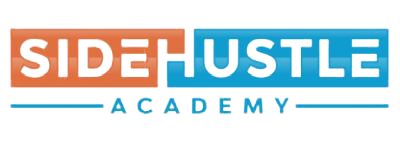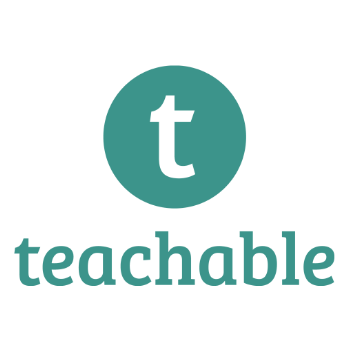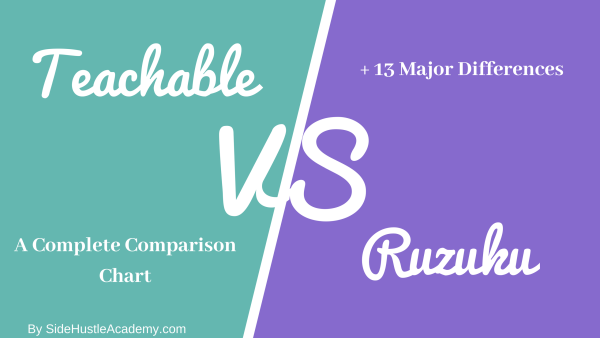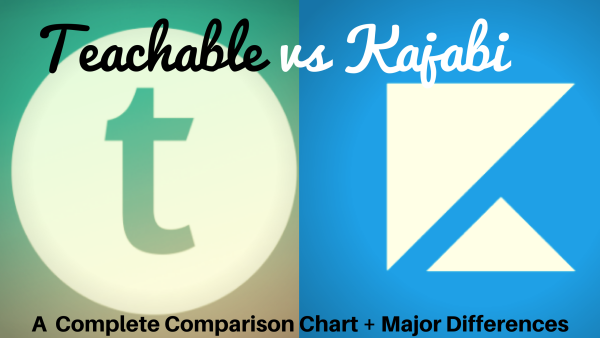How to Choose the Best Online Course Platform – A Guide
Figuring out how to choose the best online course platform can feel like navigating a maze.
You know it’s critical for success, but where do you start?
The vast array of options, each with its features and pricing plans, is enough to make anyone’s head spin.
With the dizzying array of options, it’s essential to remember that selecting a platform is not just about its features; it’s finding one that best suits your teaching style and objectives.
It’s about understanding how to choose the best online course platform.
Exploring the World of Online Courses
The digital age has ushered in a new era of learning. The rise of online courses offers an exciting opportunity to acquire fresh skills or delve into personal interests from the comfort of home.
For those with expertise, it also presents a chance to create and sell online courses on various platforms – potentially paving the way towards building a successful online business.
In essence, picking out an ideal platform can significantly impact your earnings and the value delivered to students enrolled in these classes.
Why are Online Courses Popular?
Digital advancements offer flexibility that traditional education systems often struggle to match up against.
This convenience factor and self-paced learning opportunities make online learning platforms increasingly popular among modern learners juggling multiple responsibilities.
Beyond offering easy access and adaptability, cost-effectiveness compared to brick-and-mortar institutions makes this mode even more appealing – not forgetting unlimited course access, which allows revisiting lessons anytime desired.
Potential Earnings from Selling Online Courses
If starting an online education business, potential returns could be quite substantial depending upon factors like market demand & competition level, amongst others.
Selling personally crafted content gives creators control over pricing strategies, maximizing profit margins while providing valuable knowledge resources accessible globally – making it beneficial for all parties involved.
Self-Hosted vs. Marketplace Platforms for Online Courses
In the bustling world of online education, choosing between self-hosted and marketplace platforms can make or break your success in selling online courses.
Selecting a platform is not universal; it’s all about discovering one that matches your objectives as an educator.
Let’s delve into what each type offers to help you decide which is best suited for creating and delivering your unique learning content.
Benefits of Self-Hosted Platforms
Akin to running a standalone online store, opting for a self-hosted platform hands over complete control of course pricing – allowing you to set rates based on perceived value rather than market averages.
This could potentially lead to higher earnings from every student enrollment.
Beyond financial autonomy, these platforms offer customization options galore. Everything can be tailored according to needs, from branding elements reflecting your style to interactive features enhancing the learning process.
An additional perk? Most self-hosting sites welcome unlimited learners without compromising performance or user experience. That means no cap on potential revenue growth.
Advantages of Marketplace Platforms
If marketing seems daunting or resources are limited initially, then marketplace platforms might be right up your alley. They provide access to pre-existing audiences and built-in SEO optimization tools, making digital promotion easy, even if you’re new.
This ease of use extends beyond marketing; many popular options boast intuitive interfaces reducing any steep learning curve associated with managing successful online businesses.
Here, we delve deeper into how choosing between software versus marketplace impacts overall business growth strategy.
Top Features to Look For in an Online Course Platform
In virtual education, picking a platform that meets your requirements is essential. You’re not just looking for a place to host content; you need tools for course creation, community-building features, clear pricing plans with no hidden fees, and responsive customer support.
The right platform will also offer integrations with other software tools like email marketing or payment gateways – think of it setting up your digital classroom.
Importance of Learning Experience
Your student’s learning experience can make or break their success in your courses. This isn’t merely about providing information – how you deliver this knowledge matters too.
A video lesson feature could differentiate one online course from another by offering interactive elements and visual aids that enhance understanding.
- Navigating Made Easy: An easy-to-use interface ensures instructors and learners navigate the coursework effortlessly. Plus, customizable interfaces let you design according to brand identity – creating a unique space for learners to engage with content.
The Role of Student Analytics
- Leveraging Data: Data-driven insights are crucial when refining existing courses or developing new ones. Detailed analytics provided by some platforms allow educators access to student performance trends revealing areas where they may struggle most.
- This valuable insight helps tailor future updates based on learner preferences rather than assumptions.
- You’ll see real-time changes in engagement levels as these improvements take effect.
Remember: The best choice depends entirely upon individual requirements – whether ease-of-use tops customization options or if advanced analytical capabilities hold more value.
3 Popular Options in Online Course Platforms
The selection process can be daunting with various online course platforms available. Each comes with unique offerings and tools that can shape your success when creating courses or even building an entirely online school.
1. Teachable Review
The first stop on our tour is none other than Teachable. This platform has carved out quite a reputation for itself thanks to its user-friendly interface that makes course creation as easy as pie.
The standout feature? It supports a free plan and allows you to get started at no cost.
Related Article: Teachable Review – A Complete Review
Apart from these features, they offer analytics dashboards providing insights into student data such as enrollment trends and completion rates – invaluable information when it comes time for tweaking those course materials.
If we’re talking about pricing plans, let’s say they’ve got something suitable, whether you’re dipping your toes in the water or readying yourself for total immersion into creating an online school.
Click here to Sign Up for a FREE Teachable account
2. Thinkific Platform Review
Next, we have the Thinkific Platform. This platform also has a free plan to create one free course at no cost. You can create unlimited courses when you sign up for the paid plans.
Related Article: Thinkific Reviews – A Complete In-Depth Video Review
This is the only easy-to-use platform allowing you to create free online and unlimited courses with paid plans. They also let you create community spaces that let your student ask questions and run a course and a community.
Finally, they have no transaction fees on any of Thinkific’s plans, so you don’t have to give up any money you earned on your course sales.
Click here to Sign Up for a FREE Thinkific account
3. Kajabi Platform Overview
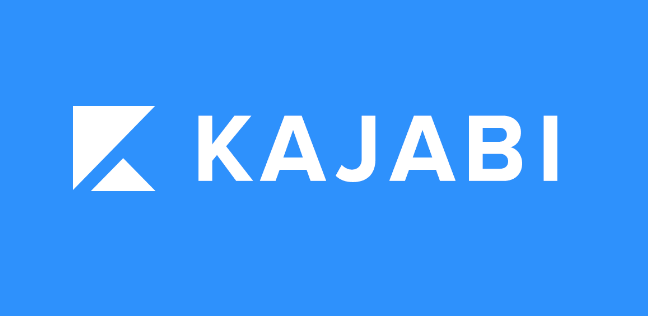
We shift gears now towards another heavy-hitter: Kajabi. It doesn’t merely host your courses; instead, it positions itself as a one-stop solution where building websites with blogs and selling online courses becomes child’s play.
Related Article: Kajabi Review – 27-Point In-Depth Review with Video
With this platform, you don’t have to integrate other tools like email or CRM to manage your school. However, there is no free plan with Kajabi, and they have limited courses you can create. It still has a lot to offer.
Kajabi gives you a free 14-day trial and offers a 30-day money-back guarantee.
Click here to start your free 14-day trial with Kajabi
Switching Between Online Course Platforms
Selecting a platform to deliver your courses is only one element of the ever-changing landscape of digital education. There may come a time when you’ll need to switch platforms – an endeavor that involves more than just transferring course content.
This means we must be premium instructors and crucial in providing value to our students while maximizing earnings from selling online courses.
Safeguarding Student Data During Transition
The security aspect during such transitions can be pretty challenging.
The critical concern here is protecting sensitive information like grades, progress reports, and personal details, which are integral parts of student data.
- You should ensure all this valuable information is securely transferred without any loss or breach,
- Your new platform needs robust security measures that comply with relevant privacy laws,
- If possible, opt for those offering assistance in migrating data; some even provide migration services easing up this phase of changeover.
Minimizing Disruption in Learning Process
Besides safeguarding data, another equally critical factor is preserving continuity in learners’ journey when changing platforms. This includes keeping track of their progression status so they don’t have to restart once they make the shift.
To minimize disruption:
- A clear communication strategy outlining upcoming changes well ahead helps immensely;
- Taking feedback through surveys regarding potential improvements on the new platform makes them feel valued, thereby retaining trust during the transitional period,
- Lastly, building a successful online business requires patience, persistence, and perseverance.
Pricing Plans & Free Trials
Decoding the pricing structure of an online course platform can feel like navigating a maze. It’s not just about comparing upfront costs but also considering potential hidden fees that could spring up unexpectedly.
It pays to know how different platforms charge for their services – whether they have flat monthly rates or tiered systems based on your number of courses or students. Plus, some may even take a cut from your sales.
| Monthly Price | Annual Price | |
| Teachable | Free Plan – $0 Basic Plan -$59/monthly Pro Plan -$159/monthly Business Plan – $655/monthly | Free Plan – $0 Basic Plan – $39 or $468/annually Pro Plan – $119 or $1428/annually Business Plan – $499 or $5988/annually |
| Thinkific | Free Plan – $0 Basic Plan -$49/monthly Start Plan – $99/monthly Grow Plan – $199/monthly | Free Plan – $0 Basic Plan -$36 $432/annually Start Plan – $74 or $888/annually Grow Plan – $149 or $1788/annually |
| Kajabi | Basic Plan – $149/monthly Growth Plan – $199/monthly Pro Plan – $399/monthly | Basic Plan – $149 or $1788/annually Growth Plan – $159 or $1908/annually Pro Plan – $319 or $3828/annually |
The Importance of Transparency in Pricing
Nobody likes unpleasant surprises when it comes to expenses. That’s why transparency in pricing plays such an integral role when choosing between various learning management systems.
You need clarity on what each plan offers and if extra charges are lurking around corners – transaction fees? Premium features?
Making The Most Out Of Free Trials
A free trial period isn’t just ‘try before you buy. It’s more than exploring functionalities without initial financial commitments; it gives you first-hand experience with the interface and tools offered by these creation platforms.
This invaluable insight into usability helps gauge both ease of use for instructors creating content and learners consuming this knowledge. Here, we delve deeper into maximizing benefits from free trials offered by popular e-learning platforms.
Besides functionality checks during these trials, pay attention to customer support responsiveness – prompt assistance will enhance user experience substantially once your courses go live.
Leveraging Marketing Tools for Successful Online Courses
Just as the heart of a successful online education business is high-quality learning content, its lifeline lies in effective marketing. This ensures that your courses reach the right audience and generate profitable returns.
Most platforms offer integrated marketing tools to promote your courses in this digital era, ranging from email integrations and social media sharing options to SEO features and analytics tracking.
The beauty of these built-in tools? They’re designed specifically for course creators like you looking to build their side hustle into a thriving online business.
The Importance of Live Chat Support
In an age where immediate responses have become a standard expectation rather than a luxury, live chat support is crucial in enhancing the user experience on any platform offering online learning resources. It provides real-time assistance addressing queries or issues students might encounter while navigating your courses.
A survey by Statista suggests that 82% of consumers prefer using live chat due to its instant response, which speaks volumes about its significance in improving learner satisfaction rates.
This enhances student engagement and fosters trust between instructors and learners, leading toward long-term relationships.
Beyond resolving inquiries instantly, having such a direct communication channel gives you invaluable insights into common challenges students face, allowing necessary improvements at a content level and the overall functionality offered by the chosen platform.
Selecting one with built-in live chat can be instrumental in turning potential prospects into enrolled students, thereby contributing positively towards the growth trajectory of your standalone online school venture.
Building Your Online School – A Step-by-step Guide
If you possess a skill or know-how that could be advantageous to others, establishing your online school can be an ideal way of sharing it.
This side hustle could even turn into a profitable online business with the right approach and tools.
Here’s how you get started:
1. Selecting an Ideal Online Course Platform
The first step in building your standalone online school is choosing the perfect platform for delivering online courses.
Remember – not all platforms are created equal. Some may offer unlimited course creation options, while others shine in their user-friendly interface or integrated payment gateways.
Prioritize what matters most to you, whether pricing plans transparency (no hidden fees), scalability as your student base grows, or customizable learning content features, and choose accordingly.
2. Crafting Engaging Learning Content
Creating successful online courses that resonate with learners and keep them returning for more requires quality content.
This isn’t just about information. It’s also about presentation.
- Incorporate video lessons: They’re engaging and provide students with visual cues making complex topics easier to grasp.
- Create interactive elements: Quizzes after each module reinforce learning, while downloadable resources like worksheets supplement understanding.
- Foster community interaction: Discussion boards where students can ask questions build camaraderie among peers enhancing the overall learning experience.
3. Promoting Courses Effectively
Your excellent course won’t sell itself. It would be best if you had effective promotion strategies too.
Thankfully some popular platform offers include essential marketing tools but don’t limit yourself there; explore other avenues of promoting, such as SEO optimization techniques, social media advertising, etcetera, to maximize reaching potential customers.
Remember creating and selling high-quality education products takes time, patience effort, so stay persistent and enjoy the journey toward becoming the premium instructor the world needs.
Key Takeaway: When building your online school, choose an ideal course platform that aligns with your priorities, such as pricing transparency or customizable learning features—craft engaging content with videos, interactive elements, and community interaction. Promote your courses effectively through various marketing strategies to reach potential customers, and remember that creating high-quality education products takes time and effort.
FAQs about How to Choose the Best Online Course Platform
How do I choose an online course platform?
Analyze your needs, budget, and target audience. Look for platforms with intuitive interfaces, community-building tools, clear pricing plans, responsive customer support, and external integrations.
Which of the following is important when selecting an online learning platform?
A key factor is the quality of the learning experience provided by features like video lessons and interactive quizzes. Also, consider student analytics capabilities.
What is the most used platform for online classes?
Teachable ranks high among popular platforms due to its unlimited course creation feature and other robust functionalities.
What is your most crucial factor in teaching with an online learning platform?
The ability to control pricing, branding options, and access to a large potential student base are pivotal factors in making this decision.
Final Thoughts on How to Choose the Best Online Course Platform
Choosing the right online course platform is a game-changer.
You’ve explored the vast landscape of online courses and their potential for creating a successful side business.
The comparison between self-hosted and marketplace platforms has shed light on your control over pricing, branding, student enrollment, and access to pre-existing audiences.
Key features like an intuitive interface, community-building tools, and transparent pricing plans with no hidden fees have been highlighted as vital in your selection process.
We dove into popular options available in the market, such as Teachable Teachable, along with its pros and cons.
Pricing structures are crucial to understanding upfront to avoid unexpected costs down the line.
You now know how marketing tools provided by some platforms can help promote your courses effectively, leading to higher enrollments and profitable ventures.
If you’re ready to leverage this knowledge for starting or growing your side hustle through online education…
